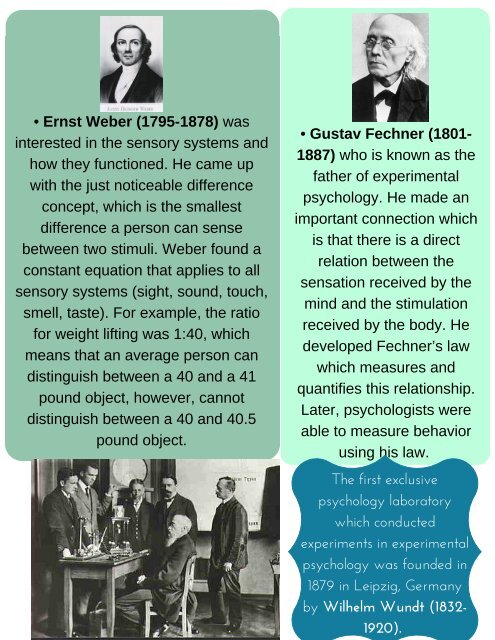PSYC
You also want an ePaper? Increase the reach of your titles
YUMPU automatically turns print PDFs into web optimized ePapers that Google loves.
• Ernst Weber (17951878) was<br />
interested in the sensory systems and<br />
how they functioned. He came up<br />
with the just noticeable difference<br />
concept, which is the smallest<br />
difference a person can sense<br />
between two stimuli. Weber found a<br />
constant equation that applies to all<br />
sensory systems (sight, sound, touch,<br />
smell, taste). For example, the ratio<br />
for weight lifting was 1:40, which<br />
means that an average person can<br />
distinguish between a 40 and a 41<br />
pound object, however, cannot<br />
distinguish between a 40 and 40.5<br />
pound object.<br />
• Gustav Fechner (1801<br />
1887) who is known as the<br />
father of experimental<br />
psychology. He made an<br />
important connection which<br />
is that there is a direct<br />
relation between the<br />
sensation received by the<br />
mind and the stimulation<br />
received by the body. He<br />
developed Fechner’s law<br />
which measures and<br />
quantifies this relationship.<br />
Later, psychologists were<br />
able to measure behavior<br />
using his law.<br />
The first exclusive<br />
psychology laboratory<br />
which conducted<br />
experiments in experimental<br />
psychology was founded in<br />
1879 in Leipzig, Germany<br />
by Wilhelm Wundt (1832-<br />
1920).


